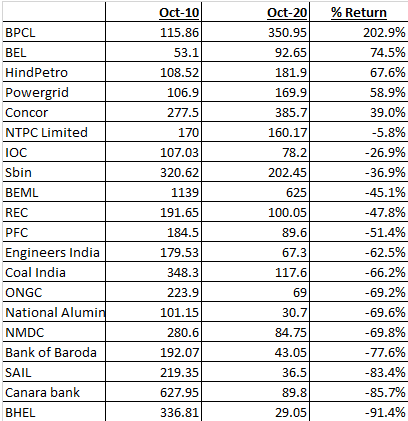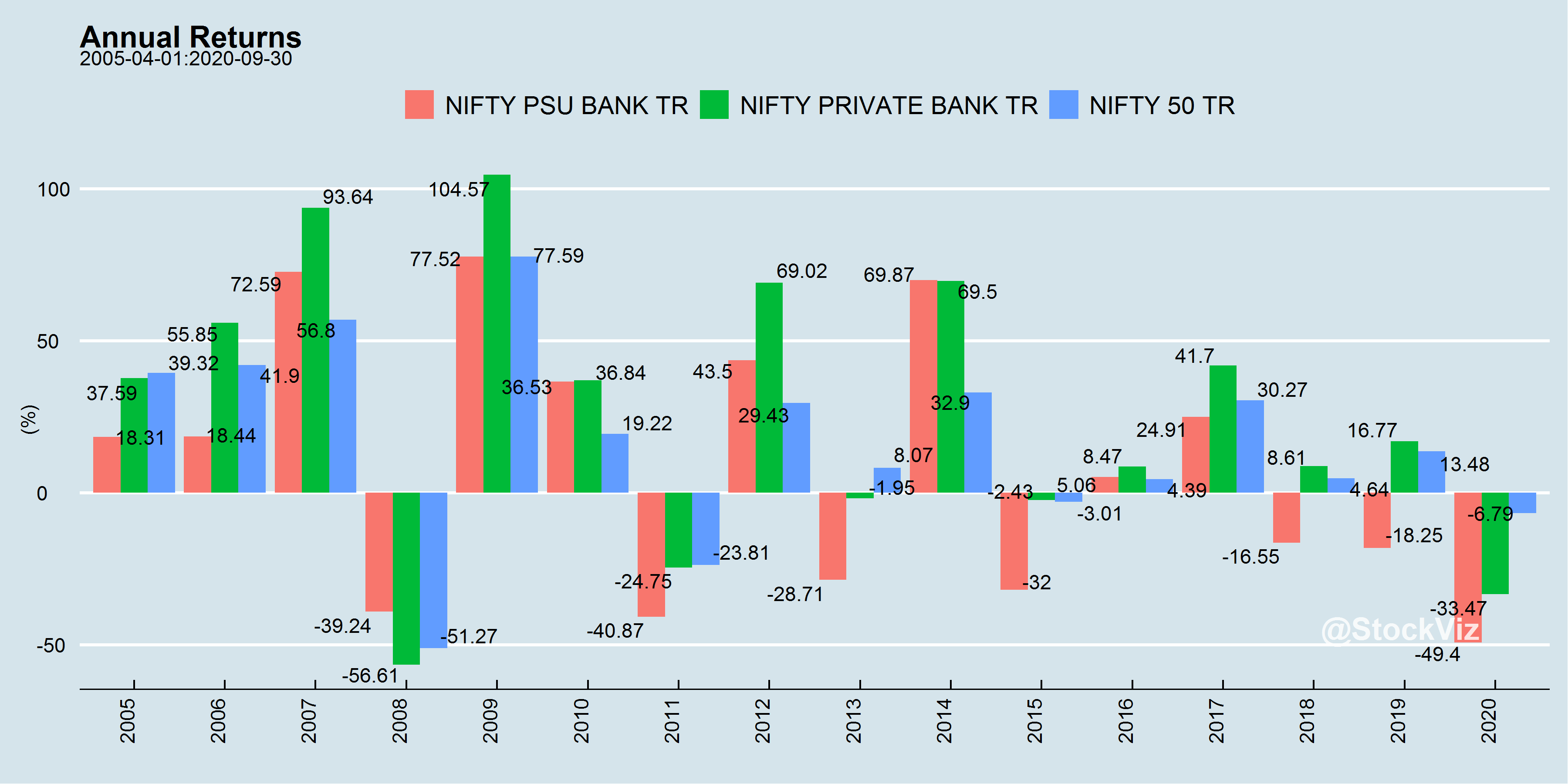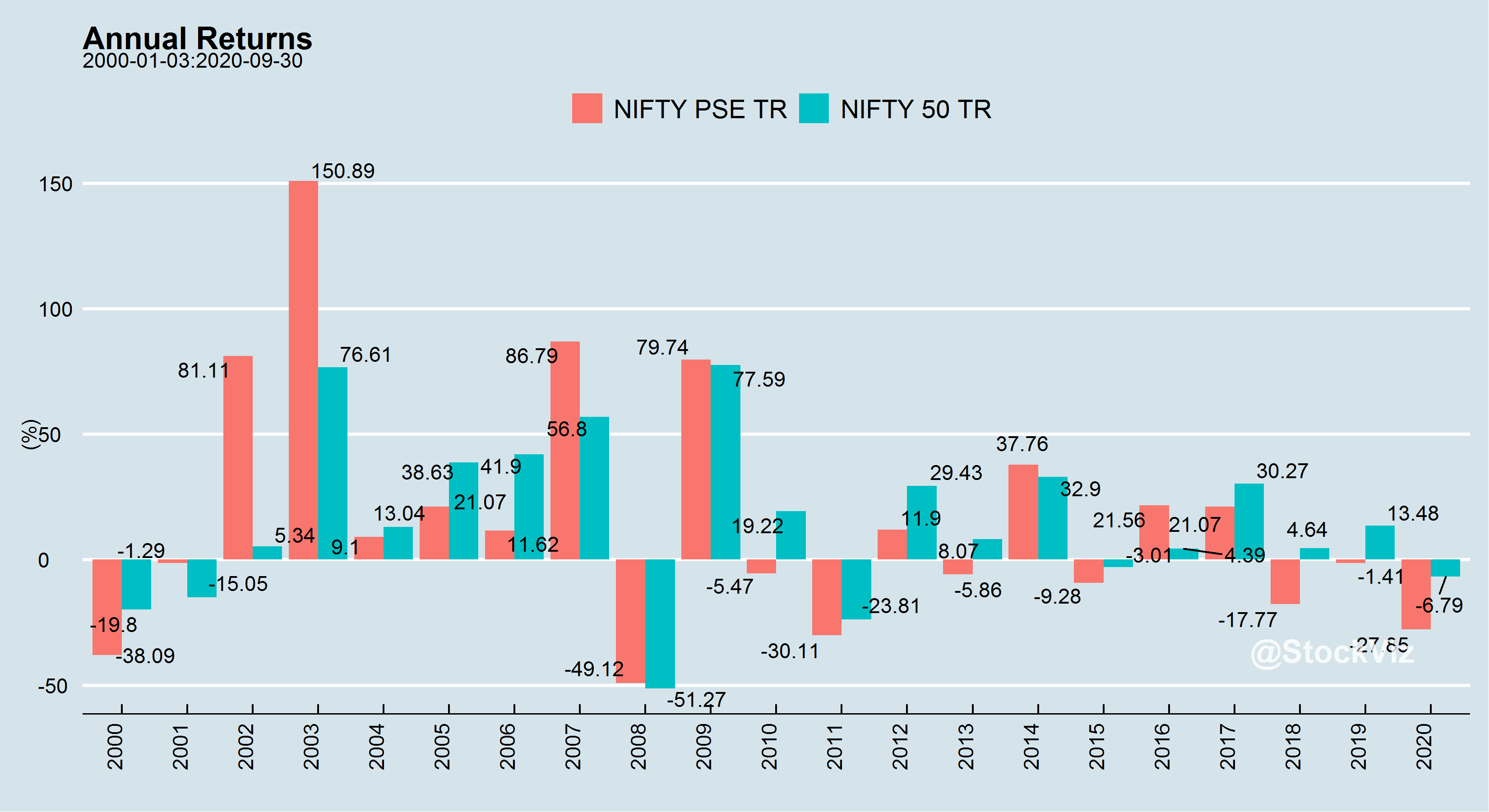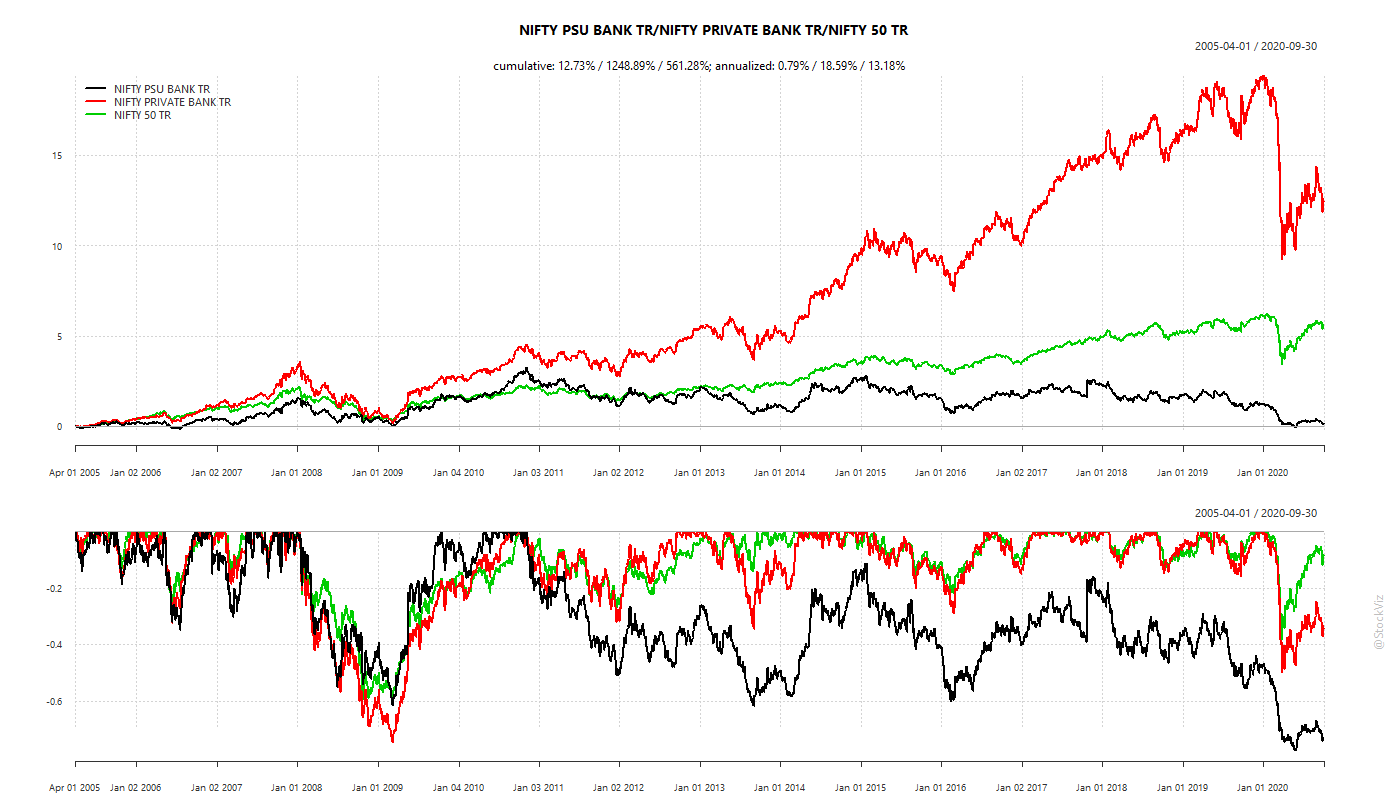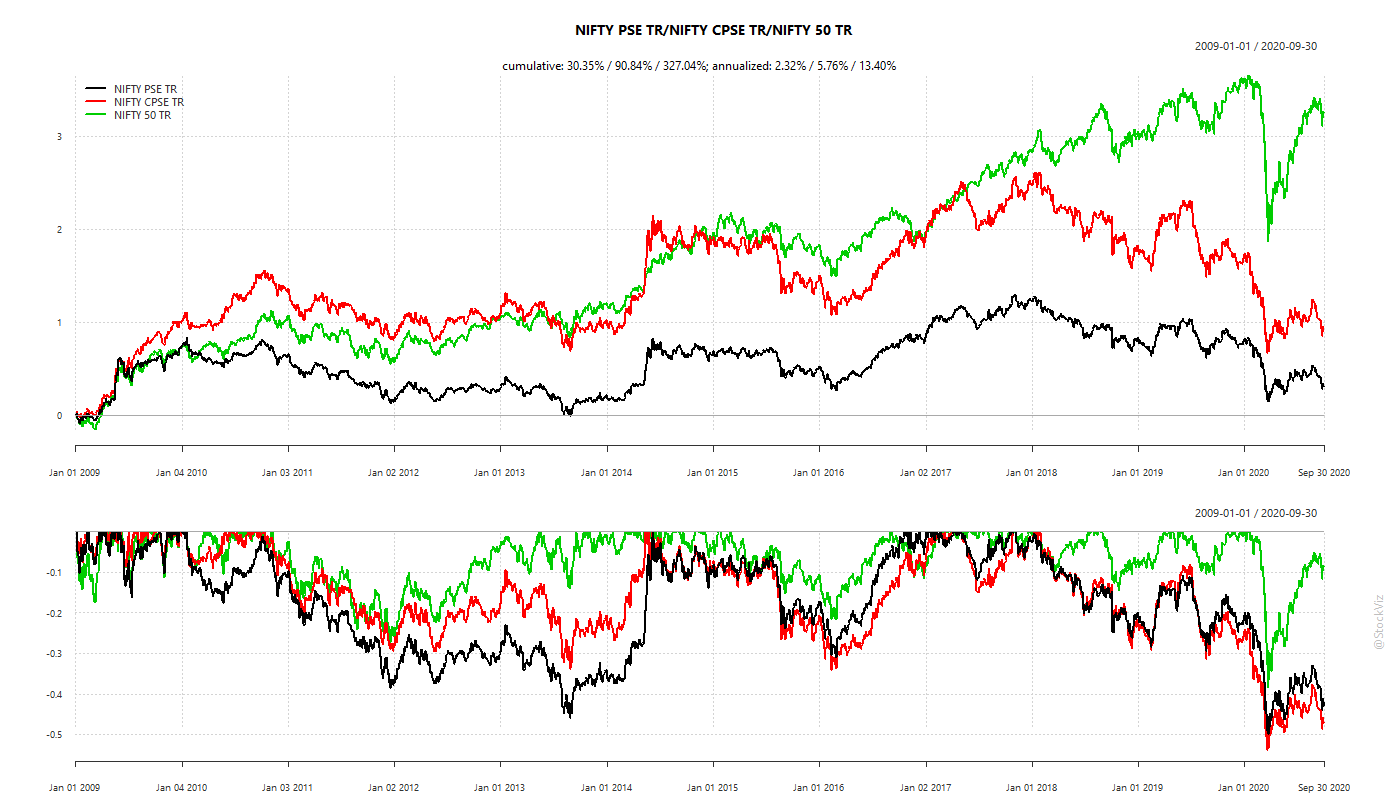There is perhaps no bigger wealth destroyer than the government.
“If you put the federal government in charge of the Sahara Desert, in 5 years there’d be a shortage of sand” – Milton Friedman
It sounds logical that State Owned Enterprises (SOE) will lag their private sector counterparts. The most obvious reason being that incentive structure of both sectors makes a lot of difference.
A company run where everyone is driven to achieve more efficiency and compete in order to deliver value to its shareholders and managers are incentivized to achieve that goal will always do better than SOEs.
But in India it’s not mere underperformance but pure wealth destruction, which cannot only be attributed to lack of business acumen or slow agility.
It’s mix of that with heavy load of political influence. The short-sightedness and stupidity of the government and at the end the government not thinking about using these enterprises to create wealth.
Here is evidence of 20 biggest well-known names and their performance over the last 10 years not counting dividends.
Only 3 companies and actually only BPCL delivering 20%+ annualized returns over the last 10 years and this is also can be attributed because the government is interested in divesting it’s majority stake in it. So it’s the fact the government is getting out is driven the stock, that’s some vote of confidence by the market on the capacity of the state.
Now let us look at performance of the PSU indices vs Nifty
Consistent underperformance by State owned banks versus private sector in the last 10 years.
Far more underperformance than outperformance.
Apples and rotten apples
We rest our case.
In general just stay away from a government owned companies.
Post Script
The story goes (and it is perhaps apocryphal) that Gorbachev sent a key aide to London to learn a thing or two about what the British were doing well, which the Soviets clearly weren’t.
The British played good hosts and Gorbachev’s aide was taken for a tour of the city with places like the London Stock Exchange and the London School of Economics being on the itinerary.
As Yuval Noah Harari writes in Homo Deus—A Brief History of Tomorrow: “After a few hours, the Soviet expert burst out: ‘Just one moment, please… We have been going back and forth across London for a whole day now, and there’s one thing I cannot understand. Back in Moscow, our finest minds are working on the bread supply system, and yet there are such long queues in every bakery and grocery store.”
Gorbachev’s aide was surprised that in London there were no lines in front of supermarkets and shops for bread, even though millions of people lived in the city. The aide ended up saying: “I haven’t seen a single bread queue. Please take me to meet the person in charge of supplying bread to London. I must learn his secret.”
Of course, it need not be said, there was no one in charge for supplying bread to the city of London. And this is precisely why there were no queues.
Source: Why capitalism won
